Russia's defeat: what the West is "afraid" of and what Ukraine should do
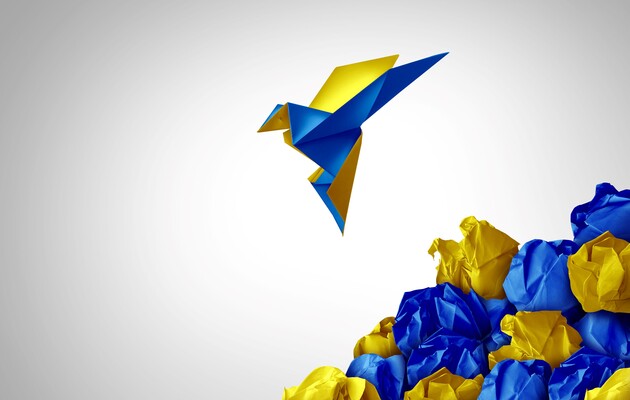
The understanding and support of the world is vital for us - now and in the future, because we do not exist in a geopolitical vacuum. Our mentality is binary: "one's own - another's", "treason - victory", "black - white". It helps us now, but it contrasts with a world that does not want to see reality that way at all. Our emotional space is defined by war, and we don't understand why others don't see it the same way and aren't ready or willing to help us in the way we think is necessary and even self-evident.
The full-scale invasion of the Russian Federation put an end to the vision of Ukrainians and Russians as one nation, it changed to the understanding of two different nations, although connected by a common history. In the West, this is the final point, the non-West is much more difficult, but there, too, the point of no return has been passed. The thesis of a "unified nation" is now perceived as an ideological legend of the "Russian world". At least in the West and Asia. This is very noticeable in discussions with the elites of both key players – China and India, as well as other Asian countries. Africa and Latin America are more complicated, but "in the process", or rather, at the very beginning. This means that the mental basis for the Russian concept of "conditional independence of Ukraine" and the necessity of its stay in the zone of only Russian influence no longer works. Not completely and not for everyone, but in general it does not work. However, this does not mean an automatic increase in support for the non-Western world and the fact that it will begin to act in our paradigm - for the non-Western world, what is important is not what happens to us, but what will happen to the world.
In Moscow, politicians will continue to pretend that nothing has changed, but there, too, they know how to understand the geopolitical situation. The Russian leadership has not changed its goals regarding Ukraine, because it is an integral part of the Russian vision of the world and one of the key foundations of the regime. I have always said that this regime will do everything to destroy Ukrainian statehood, since after the Maidan it cannot regain control over Ukraine, because the point of no return has been passed. Putin did not understand this and nevertheless decided to seize Ukraine. He was fundamentally wrong in his assessments of us, the West and, in fact, his regime. Putin failed to achieve the goals he wanted to achieve in Ukraine, or rather, we did not allow it. Now he will return to the previous strategy, namely to destroy Ukraine as such. He sees us as an "artificial reality" and no amount of argument will change that. Moreover, it contradicts his understanding of his personal mission. The level of his ambitions is certainly not limited to a monument to Putin on Putin Boulevard somewhere in the occupied territories, where Putin's pioneers read poems about him. He thinks in the categories of civilizations - as he understands them, and the idea of the "Russian world" as a special civilization reflects his view of the world and his mission. But this means that the Russian Federation and the "Russian world" do not fit either the West or the East - a fact that has only recently begun to be discussed in Western and non-Western elites. Without a change in the regime, the destruction of Ukrainian statehood will remain the first priority of Russian policy. But even after Putin's regime, the Russians will not go anywhere, as well as the Russian mentality that seeks revenge. Rebooting the regime or even rebooting the Russian Federation will not make it less autocratic and more sympathetic to us. It may change or weaken as a result of mental changes and the change of generations in Russian society, but no prerequisites for this currently exist. Preserving and restoring the regime will always be the number one priority for Putin and his entourage, and the war is currently seen as contributing to this in Moscow. During a year and a half of the war, the regime went from an autocracy to an almost classic dictatorship.
We see our war as a war against the Russian Federation and the Russian regime. In Moscow, it is seen as a war against the West and, in particular, the USA. By the way, almost the entire non-West sees this war in the same way, and despite the changes in our understanding, almost nothing has changed here recently. The times of the Cold War have passed, the military, technological and economic potential of the West is an order of magnitude greater than that of Russia, with one important exception – nuclear weapons. The Russian Federation cannot stand up to the West and knows that in the long run the competition with the West is obviously losing, but it hopes that the West is not capable of a marathon, unlike the Russian Federation, where the regime can, as they believe, hold out for a long time. The Russian elites and Putin personally despise the West and treat it with contempt, they believe that the opposition of the Russian Federation is caused by purely geopolitical and geoeconomic considerations, not value considerations. Putin has personally repeatedly spoken about the desire of the West to "take away" Russian resources. As a result, his audacious phrase "like it or not, you'll have to put up with my beauty" came back to haunt him: energy exports to the West have fallen radically, while exports to the non-West are "under control" and restrictions, the sanctions regime is far from ideal, but it works. That is, in general, a significant part of Russian foreign turnover, both commodity and technological, is under the indirect control of the West. However, the Russian regime, tolerating Western pressure, adapts to it quite effectively. The philosophy of sanctions pressure has changed – now it is not about changing the behavior of the regime, but about strategic deterrence and weakening, that is, it is based on political decisions that can be tougher or weaker depending on the situation. Everything that is beyond the economic critical threshold of the West has almost no chance. The export of metals from the Russian Federation continues, almost as before, Moscow constantly invents thousands of ways to circumvent sanctions, almost all of them are known, but the desire to spoil relations with third countries in order to overtake them is very limited. The export of Russian oil continues, but it is processed in other countries, for example in India, and exported further – in fact, it is "laundered". Manipulations with the cost of freight and insurance make it possible to circumvent the restrictions set by the Group of Seven (G7), and everyone knows this. This list can be continued indefinitely. The West has the opportunity to strengthen the economic isolation of the Russian Federation, but there is no desire/will to increase the price of sanctions for the Kremlin, if this increases the price for the West. However, if the strategy works, even if it is not perfect, there is no incentive to change it in the West – there is a perception of the Russian Federation, which is weakening economically, militarily, technologically and demographically, as a "declining country". But the weakening must be controlled – this is a critical condition. Paradoxically, the same strategy suits China. Since the West realized that a military defeat in Ukraine is impossible, its strategy will continue to be based on avoiding critical risks of escalation, on controllability and minimizing the negative impact on the West itself and the world markets that are critical for it. It sounds generally cynical, especially for us Ukrainians, but many Western politicians and experts argue that enduring the "marathon" and destroying the Kremlin's dream of overcoming the West is possible only in this way. A lion can run 300 m and then has to rest, and a hyena can cover a large number of kilometers.
This whole geopolitical situation, which from the outside seems to be quite logical, does not suit us, of course. We are in a different coordinate system, and the clock works completely differently for us. In addition, the strategy of controlled weakening of the Russian Federation fundamentally affects the essence and timing of decisions regarding the security model for Ukraine. Simplifying somewhat, we can talk about three groups of options.
The first option (in fact, it is the one being discussed today) is to make us a "porcupine" thanks to military and financial aid, that is, to make the next attack so harmful that the Russian Federation will refrain from it. But this idea fundamentally underestimates the nature of the Russian regime – it can launch an attack under any conditions, and in a critical situation for its preservation, significant losses can even be an element of its consolidation. This approach also does not coincide with the "Israeli" approach, because we do not have nuclear weapons (while Israel does), on the contrary, the Russian Federation is a nuclear state. The USA and Israel agreed on the conceptual approach of "qualitative military superiority", we can achieve it in separate sectors with the help of Western weapons, logistics, intelligence and advantages that are available to Ukraine, but we can achieve comprehensive military qualitative superiority only as part of the North Atlantic Treaty Organization (NATO).
In addition, it is important to understand what the obligations will be: about providing what we need and when we need it, or about what we can be given and when it can be given to us? Whether the latter will be enough for critical deterrence is an open question. It is very likely that we will begin to discuss with our allies the question of what "critical deterrence capability" is and how to define it. After all, financial assistance occurs in the "Israeli" model based on projected ten-year periods. It is difficult to estimate the scale of the necessary assistance, it depends on the assessment of future risks, but the calculations in the preparation of which I participated show that we need at least $200 billion over the next ten years. The real need is $300 billion. plus, that is, three times more than Israel received after the Camp David accords for the entire time. Helping us become a "porcupine" will "keep us on our toes", as many in the West hope, that is, maximally mobilized and ready for anything without providing security guarantees. And here lies another unexpected and very dangerous challenge.
Our European friends are very concerned that the mobilization and even "militarization" of Ukrainian society will become an obstacle to successful integration into the European Union. Comparing Ukraine with "a kind of European Israel" sounds nice, but it doesn't really fit with the values and way of life of the European Union. Many theses about "Ukrainian nationalism" are already raging there, and the Russian Federation will do everything to support them. The consensus mentality of the European Union clearly fears the change of key balances in the European Union due to the accession of Ukraine and will try to do everything possible to prevent this. And this, as everyone understands, in no way makes the future process of accession negotiations, which is already extremely difficult, any easier.
The second option is to provide a security guarantee without joining the North Atlantic Treaty Organization (NATO). They can be bilateral, for example from the USA, they can be multilateral, and they can be "indirect", for example, in the form of placing units of the North Atlantic Treaty Organization (NATO) member countries on our territory. The second option, if desired, can be combined with the first, but a simple question arises: why not move immediately to the third option, namely Ukraine's membership in the North Atlantic Treaty Organization (NATO)?
The answer to this question for many is that the West is afraid of the Russian Federation, but this is, of course, a simplification. Conventionally, the North Atlantic Treaty Organization (NATO) prevails over the Russian Federation, and a nuclear conflict is unlikely, although not excluded. After all, Putin also wants to be written about in books and mentioned in textbooks and even read by someone in the form of loyal followers of his regime. The question is also that Article 5 of the North Atlantic Treaty Organization (NATO) Treaty is "sacred" for collective defense, but no one has ever really questioned and "tested" it. Extending security guarantees to Ukraine will create a temptation for the Kremlin, as many in the West believe, to show the latter's unwillingness or inability to comply with its obligations and thus question the solidarity and legitimacy of the entire North Atlantic Treaty Organization (NATO) and the West. It is this logic, in addition to the misunderstanding of what it means to accept a country into the North Atlantic Treaty Organization (NATO) during a war, that prevents the implementation of real security guarantees. And, in the end, no one canceled the desire of many in the West to find a new modus vivendi with the Russian Federation. All these issues require a thorough, rational discussion, joint analysis of risks and strategies. Given its history and mentality, the West will not accept emotional arguments in matters of its own security.
And the vision of Victory as a goal is different between us and the West. Our efforts are in the same direction, but a significant, I would say, dominant part of the West does not want the defeat of the Russian Federation, like "the defeat of Germany in the First World War." They believe that this will create more problems in the long run than it will solve, and, in particular, will make the Russian drive for revenge more dangerous and such that it will be manipulated by other geopolitical rivals of the West. The mental memory of the West says that capitulation is not the basis for stable peace, to understand this it is enough to look at least at the history of Europe. Moreover, declaratively and politically, our partners are, of course, in favor of restoring our 1991 borders, but there is no consensus in the West to do this, no matter what it costs, given the risks of potential large-scale escalations. These escalations are not only about the possible use of weapons of mass destruction, because no one wants new waves of revanchist sentiments in the Russian Federation in the West. And lack of political consensus means lack of desire/ability to raise rates. This is where all the talk about "Korean" or other options comes from. Although, as everyone remembers, the presence of the USA troops and allies from the south and Chinese troops and the Soviet Air Force from the north played a key role in the agreements regarding the demarcation line there. That is why the agreement on the "Korean option" in relation to us without the presence of the North Atlantic Treaty Organization (NATO) troops on our territory means, rather, the "Kashmir option", where the subsequent history, including the acquisition of nuclear weapons, is known to everyone. By the way, more than one renaissance awaits the discussion about this in Ukrainian society, if Ukraine's membership in the North Atlantic Treaty Organization (NATO) does not take place in a quick and achievable perspective.
The issue of security is the number one issue for the future of Ukraine, our security model will determine whether we can only exist or whether we can truly develop. A security model without the North Atlantic Treaty Organization (NATO) means existence, but not development. The biggest challenge to our security through the prism of its future model is the "insufficient Finnishization" of Ukraine. That is, delaying Ukraine's membership in the North Atlantic Treaty Organization (NATO) with a very long and complicated negotiation process regarding joining the European Union, namely European integration, according to our allies, should become a transforming force for Ukraine. Not in the sense of physical reconstruction, which is obviously important, but in the sense of turning us into a European country, which is also a necessary prerequisite for security.
Negotiations with the representatives of the European Union will be extremely difficult, the European Union currently does not know how to incorporate us politically, financially and mentally. As we have to fundamentally change for the accession, so must the European Union itself, and a positive emotion about us is obviously not guaranteed, because, unfortunately, no one has canceled the state of fatigue. That is why, despite all the temptations to do more in the non-Western world and increase our awareness and perception there, I would leave, under conditions of limited resources, the countries of the European Union and, of course, the USA as priorities number 1, 2 and 3 of our work, including public diplomacy. After all, our challenges are just beginning, and membership in the European Union and the North Atlantic Treaty Organization (NATO) is a matter of life and death for us.
We surprised our friends and, in fact, the whole world at the beginning of 2022, when many did not believe in us. Now we have to surprise even more by showing the ability to change many times faster and not according to the patterns given to us, but according to our own vision. In the 20th century, there are two examples of radical successful changes in the conditions of constant danger - these are Israel and South Korea. A lot has been written and rewritten about them. We cannot copy them, they had their formation in the conditions of other historical events and mentality. We will have to show that we can become a project of the 21st century – in fact, the first in this century. This is our only chance to remain more important than we are in global geopolitics and geoeconomics. We have an opportunity to apply the ideas of the 21st century to Ukrainian society and economy – we have nothing to lose and we cannot be stable and successful without changing.
It is obvious that in the future we will live with a new Constitution, a new social contract, and in general post-war Ukraine will bear little resemblance to the pre-war one. We also have a chance to become part of the discussions about the future European and Eurasian security model. As Ostap Bender said, "foreign countries will help us", because we can become the first success story for the West after the last waves of expansion of the North Atlantic Treaty Organization (NATO) and the European Union. And this history of the West is absolutely necessary. But for this we have to help ourselves and become a part of the West mentally, and a part that the West wants, not forced to protect and support. The main trend of the world is the globalization of security and the deglobalization of the economy. We have a unique opportunity to use it. Take your chance while you still got the choice. It's the Australians, AC/DC, but it's good for the right motivation.
Read this article in Ukrainian and russian.
Please select it with the mouse and press Ctrl+Enter or Submit a bug










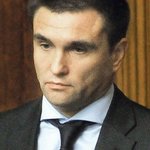
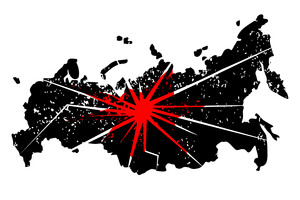
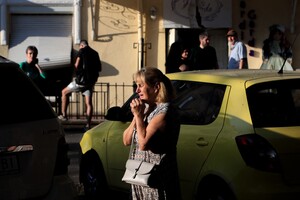
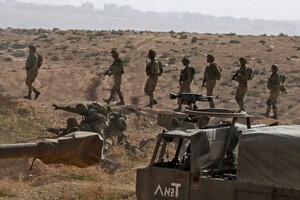
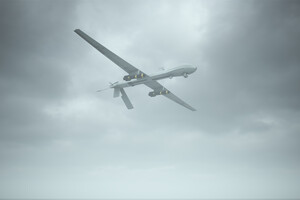
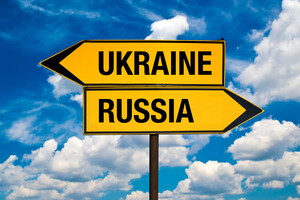
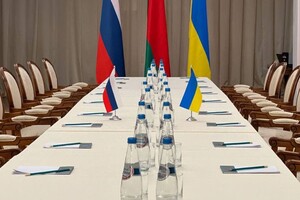
 Login with Google
Login with Google